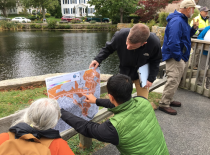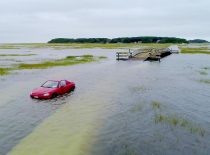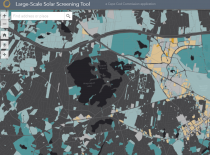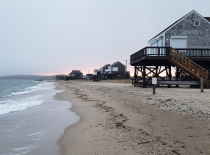Category: Climate
The Cape Cod Commission is pleased to invite Cape and Islands students in grades 9-12 to apply for the Climate Ambassador Program. The Program is an initiative to educate, engage and empower young people on Cape Cod to work together to combat the impacts of climate change.
Cape Cod is home to many historic buildings and historic districts in flood hazard areas. Unique challenges exist in developing floodproofing measures consistent with historic resource protection.
The Cape Cod Commission is pleased to announce it has received funding through the state's Executive Office of Energy and Environmental Affairs to create new regulatory tools for development in the floodplain.
To support, advance, and contribute to the Commonwealth’s goal of net zero carbon emissions by 2050, Commission staff is working across different levels of government and with local advocacy organizations to promote the adoption of EVs and the expansion of EV charging infrastructure.
The towns of Chatham, Harwich, Falmouth, Mashpee, and Provincetown will share a $205,479 action grant awarded through the Massachusetts Municipal Vulnerability Preparedness (MVP) Program to assess low-lying roads in each community and develop solutions. This funding is part of $32.8 million in MVP Program grants awarded to Massachusetts cities and towns in late August through the Executive Office of Energy and Environmental Affairs.
Working with the United States Army Corps of Engineers Silver Jackets program, the Cape Cod Cooperative Extension, Woods Hole Sea Grant, and several state and local partners, the Cape Cod Commission…
A webinar series hosted by the International City/County Management Association (ICMA) and the American Planning Association (APA) recently featured the Cape Cod Commission’s large-scale solar screening tool.
The second session of the Cape Cod Commission’s Climate Ambassador Program came to a close this month.
The inventory of electric vehicle (EV) charging stations on Cape Cod is growing.
The Cape Cod Commission has developed a model coastal resiliency bylaw in partnership with the Urban Harbors Institute (UHI) at the University of Massachusetts Boston; Noble, Wickersham, and Heart, LLP; Woods Hole…








